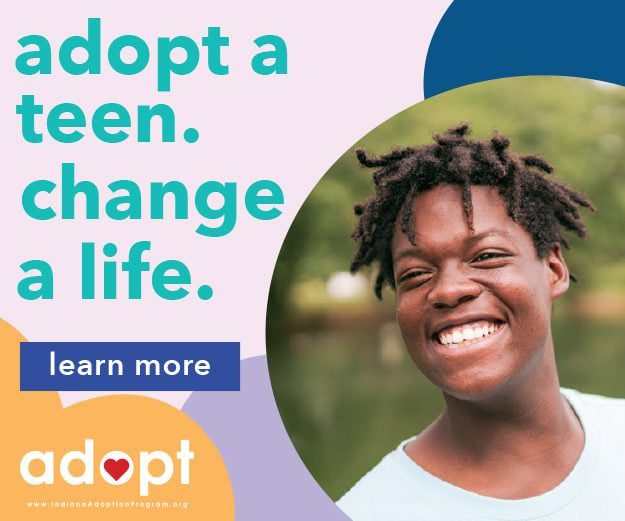Jeff Cottrell came from a two-parent home as a child growing up in Anderson and didn’t need to turn to his neighborhood streets. He did it anyway. He wanted to be with his friends — not at the movies or the mall, but on the streets stealing cars and selling cocaine. It caught up with him, and when he was 19 he went to prison for five years, at which point Cottrell said he decided to ditch that lifestyle.
Now 50 years old and a resident of Indianapolis, Cottrell is one of four Indy Peacemakers, a team of full-time community resource managers tasked with helping Indianapolis overcome its crime and violence problems. In 2018, Indianapolis saw 159 murders, two more than in 2017 and the fourth year in a row the city set a new record high. Six people were shot to death in three separate shootings within 24 hours in April.
Indy Peacemakers are part of the violence reduction team in the Office of Public Health and Safety (OPHS). They report to Shonna Majors, the city’s first director of community violence reduction in OPHS.
Cottrell said he joined in part because he used to work at Arsenal Technical High School as a behavioral interventionist and saw some students just weren’t getting what they needed out of school.
“This is no knock on the schools,” he said, “but sometimes a kid just doesn’t have success in school for whatever reason. Because of that, he ends up going to the neighborhood. Just because he’s not in school doesn’t mean he doesn’t need resources. It doesn’t mean he doesn’t need someone to give him a little help and give him a little guidance.”
Majors said one of the keys to this initiative working is that Indy Peacemakers, in some capacity, can relate to the people they interact with every day.
“For me, it was an opportunity to give back to the neighborhood that I helped tear up,” said Robert Fry, 45, who grew up in Indianapolis and went to now-closed Broad Ripple High School and is the longest-serving Indy Peacemaker. “I say that because when I was a teenager, I was someone that was carrying guns, selling drugs, having shootouts.”
Shortly after starting in the summer of 2018, when Mayor Joe Hogsett launched the Indy Peacemakers initiative as part of a broader anti-violence approach, Fry helped calm down a “social media beef” where he said teens where ready to start shooting.
“If you keep doing this, you’re gonna die,” he told them. “And if you don’t want to die, stop doing the things that you’re doing.”
Fry is the only remaining original Indy Peacemaker. The other three — Casby Williams, Joaquina Everette and Cottrell — were hired in March. Part of what they do is take referrals, mostly from Indianapolis Metropolitan Police Department, based on violence that has already happened or could happen if no one steps in.
Indy Peacemakers are assigned to IMPD districts. Majors said she assigned them to their districts based on what kinds of crime and violence are most likely to happen there. Everette, 50, for example, has a medical background and works in the downtown and southeast districts because that’s where Majors estimated her expertise would be most useful.
Aside from being calming and reassuring voices in the community, Indy Peacemakers have connections to resources and inform those leaders that they’ll be referring people to them.
“We don’t have a list of resources where we go to a family and say, ‘Here you go, good luck to you,’” Majors said. “We actually connect them with those resources. We’ve already made connections so that people know that they’re coming, and it’s not just a cold handoff.”
Williams, 35, emphasized that it’s not just about going to the teenager who’s threatening on social media to shoot someone. He said it’s important to understand what’s happening around that teenager, to learn about family and community circumstances that might be underlying causes to violence.
There’s also a 30-day follow-up with every family referred to Indy Peacemakers, where they can track things like employment and if the situation they responded to has gotten any better. Majors gives quarterly updates to the Indianapolis City-County Council Public Safety and Criminal Justice Committee.
This line of work can be dangerous, especially when it comes to dealing with known shooters. None of the Indy Peacemakers said they’ve felt like they’ve been in real danger since being on the job — Fry said he’s gotten used to that overarching sense of what danger might await but that he’s “never comfortable” — and there are measures in place to make sure it stays that way.
Majors said Indy Peacemakers use the buddy system when responding to a referral — showing up to a house that was shot up the night before, for example — and they let IMPD officers know where they’ll be to cut down on response time if they need to make a call. Indy Peacemakers also have uniforms that distinguish them from police.
It’s an extensive operation that requires quick thinking, community connections and an ability to see something more than just violence that pops up here and there.
“You do get a better understanding of how the city and government really have a sense of community with the people,” Williams said, “making sure their well-being is there.”
Contact staff writer Tyler Fenwick at 317-762-7853. Follow him on Twitter @Ty_Fenwick.
Indy Peacemakers, part of a broad anti-violence approach Mayor Joe Hogsett launched in 2018, are tasked with helping the city reduce crime and violence. Left to right: Jeff Cottrell, Robert Fry, Joaquina Everette, Casby Williams. (Photo/Tyler Fenwick)






